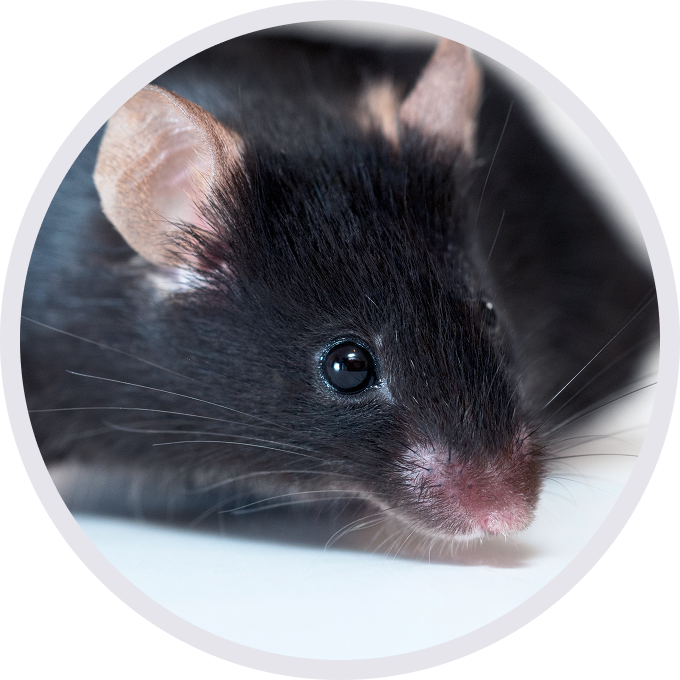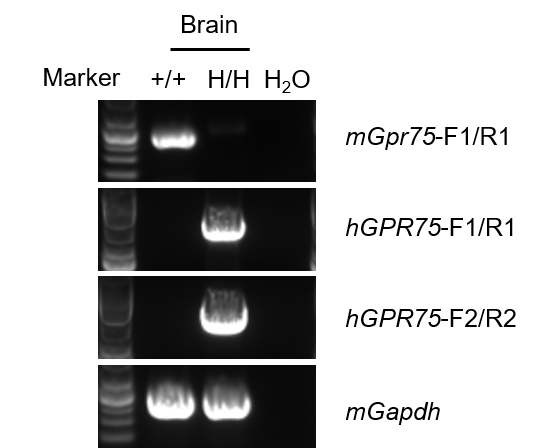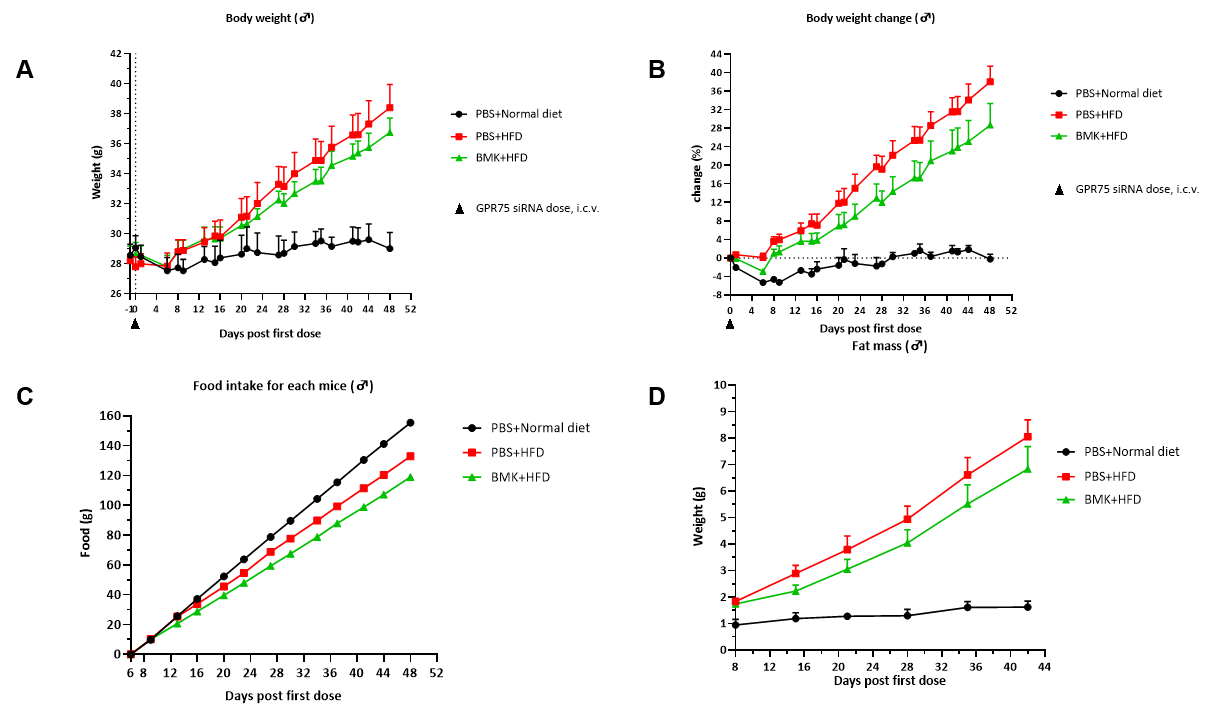
C57BL/6JNifdc-Gpr75tm2(GPR75)Bcgen/Bcgen • 113100
Gene targeting strategy for B-hGPR75 mice plus. The exons 1-2 of mouse Gpr75 gene that encode the full-length protein were replaced by human counterparts in B-hGPR75 mice plus. The promoter, 5’UTR and 3’UTR region of the mouse gene were replaced by human counterparts. The human GPR75 expression is driven by endogenous human GPR75 promoter, while mouse Gpr75 gene transcription and translation will be disrupted.

Strain specific analysis of GPR75 mRNA expression in wild-type C57BL/6 mice and homozygous B-hGPR75 mice plus by RT-PCR. Brain RNA were isolated from wild-type C57BL/6 mice (+/+) and homozygous B-hGPR75 mice plus (H/H), then cDNA libraries were synthesized by reverse transcription, followed by PCR with mouse or human GPR75 primers. Mouse Gpr75 mRNA were detectable only in wild-type C57BL/6 mice. Human GPR75 mRNA was detectable only in homozygous B-hGPR75 mice plus but not in wild-type mice.

Efficacy study of GPR75 siRNA in HFD-induced B-hGPR75 mice plus. The B-hGPR75 mice plus were administered intracerebroventricular injections of BMK (GPR75 siRNA) and PBS, followed by high-fat diet induction. (A) Body weight after HFD induction. (B) Body weight change after HFD induction. (C) Food intake. (D) The weight of fat mass. Compared with PBS controls, GPR75 siRNA administration decreased body weight, weight change, food intake, and fat mass after a high-fat diet. Values are expressed as mean ± SEM.
Note: The data comes from the client.